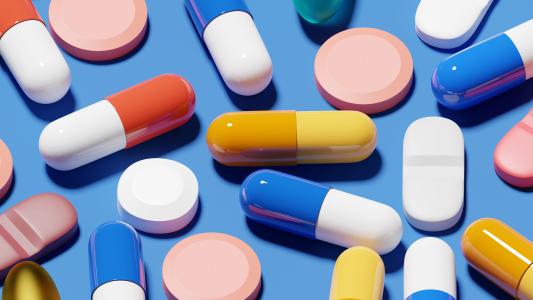Researchers have built a proxy for the human body by linking together “organ chips,” a technique that could speed up research on diseases and new treatments. The organ chips — tissue cells from a specific organ, linked together like systems in the body — will allow researchers to study the human response to various drugs and chemicals in the lab, without needing human or animal test subjects.
“It’s a little bit like human experimentation in vitro,” says biologist Donald Ingber.
If this conjures thoughts of Frankenstein, rest assured, the body-on-chips system is hardly human. It looks more like a tesselation of polymer tiles, each about the size of a domino. Two fluid channels are lined with human tissue cells from blood vessels and various body parts.
“It’s a step in between animals and humans, and animal studies have their own problems. They’re not human, (so) they don’t have all the human response,” says Ingber.
94% of drugs that pass animal studies will fail during human trials, so scientists also test drugs on human cells in a petri dish. But cells-in-a-dish are no more representative of an entire human body than an animal is. Lately, researchers have turned to growing mini-organs (also called organoids) to model diseases and test new drugs. But isolated cells and even mini-organs lack the complexity of an entire organ-filled human body.
So Ingber suggested linking many organ chips together: a lung, liver, intestines, kidneys, skin, bone marrow, and the blood-brain barrier.
Ingber’s team at Harvard’s Wyss Institute built an instrument, called the Interrogator, which automatically links the organ chips to create a functional “human body-on-chips.” With this platform, they can predict how the human body will metabolize drugs. They are now focusing on treatments for COVID-19.
“There is no bigger crisis than COVID-19 in the entire world right now,” Ingber says. He says that the fastest way to find a treatment for COVID-19 will be by finding a drug that is already FDA-approved and can be repurposed to treat COVID-19.
“The problem is COVID-19 and the need to come up with some kind of solution quickly. The fastest way you can get drugs out there that might prevent spread, and thus allow us to go back to work, would be finding some existing drug that you can reuse that’s already approved and safe,” Ingber says. “We’re developing a systematic way to move some of these drugs up the priority list to be tested in patients.”
Even FDA approved drugs that pass Ingubur’s organ-chip studies will need to be tested in COVID-19 patients to be approved as a coronavirus treatment.
I hadn’t heard of organ chips until recently. But the origins of the industry are about three decades old. It began in 1989 when biomedical engineer Michael Shuler helped a student make a model of the fluids in the human body to study the effects of drugs. Their model mimicked how tissues hooked together. This began the evolution of organs-on-chips. Since then, Shuler and about 100 companies have commercialized organ chips.
About 10% of the drugs that go into clinical trials come out as approved, useful drugs. If we just changed that from 10% to 20…society gets twice as many useful drugs for basically the same investment.
Michael Shuler
“About ten percent of the drugs that go into clinical trials come out as approved, useful drugs. If we just changed that from ten percent to twenty — we think we can do better than that even — that means society gets twice as many useful drugs for basically the same investment,” Shuler says.
The organ chips really do help predict how the human body metabolizes the drugs. In one study, Ingber found that linked liver, kidney, and bone marrow organ chips metabolized cisplatin, a chemotherapy drug, at a similar rate as humans metabolize it. The organ chips even experienced the same injury to the kidney cells that chemotherapy patients commonly show.
“I’m anxious to see FDA finally embrace this technology fully,” says Shuler. Although the FDA has shown support, the technique isn’t yet FDA approved for pre-clinical studies, which often require animal studies.
Both Shuler and Ingber think that organ chips have a vast potential to speed up drug development and even outdo animal studies, to the point where animal studies become obsolete.
In addition to new drug studies, by creating specific organ chips for individual patients, researchers could test drug combinations for personalized care before administering them to the patient. And the organ-chip platform could close the diversity gap in research, which is important because some groups suffer from certain diseases more than others, but aren’t well represented in research studies.
If all goes according to Ingber and Shuler’s plan, it won’t be long before organ-chip studies become a standard part of the process for new drugs.
